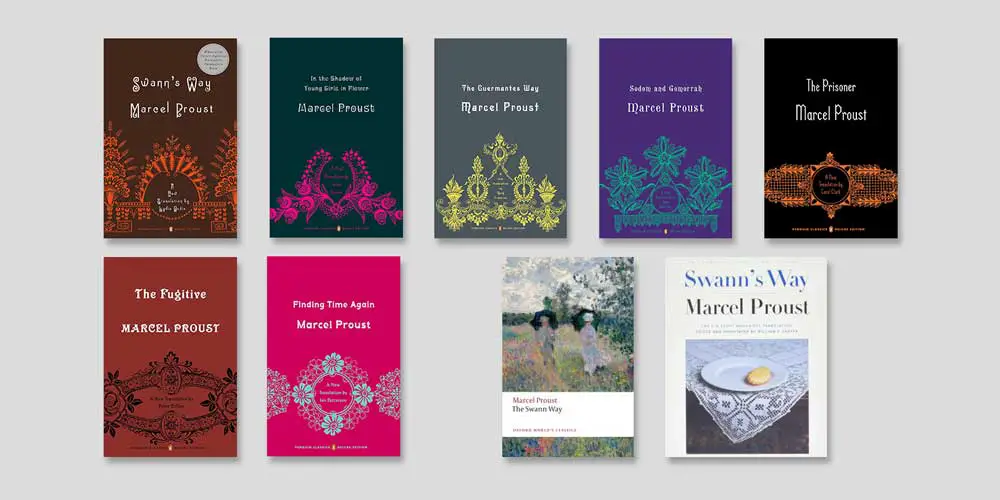“Which English translation of In Search of Lost Time should I read?”
I found so much information on translations of In Search of Lost Time that I had to split this post into two. Post 1 gives some background information on the novel, its length, and its title and talks about three different versions of the Scott Moncrieff translation.
This page is Post 2. It describes translation and revision efforts after D. J. Enright’s 1992 revision of the Scott Moncrieff / Kilmartin version of In Search of Lost Time.
If you just want a quick-and-dirty recommendation on which translation to choose, jump to the Conclusion at the bottom of this page.
In Search of Lost Time: Translations in English
There are only two complete translations: the original one by Scott Moncrieff, and a much more recent one by multiple translators organized by Penguin. But wait, there’s more…
Described in Post 1 (separate page)
These versions are still in print, except for Blossom’s Vol 7.
- 1922–1932 – C.K. Scott Moncrieff and Stephen Hudson or Frederick Blossom
- 1931 – Vol 7 = Time Regained, translated by Sydney Schiff writing as Stephen Hudson (UK)
- 1932 – Vol 7 = The Past Recaptured, translated by Frederick Blossom (US)
- 1981 – Scott Moncrieff and Andreas Mayor revised by Terence Kilmartin
- 1970 – Vol 7 = The Past Recaptured / Time Regained, translated by Andreas Mayor
- 1992 – Scott Moncrieff and Andreas Mayor revised by D.J. Enright
Described Below (on this page)
- 1995–2002 – multiple translators under Christopher Prendergast
- 2013–2025 – Scott Moncrieff revised by William C. Carter
- 2023–20?? – multiple translators under Brian Nelson and Adam Watt (ongoing)
In Search of Lost Time: Translation Comparison
Extracts have been included so you can see how the different translations sound.
In Search of Lost Time: Other Info and Resources
For links to useful websites and information about some biographies and guides to Reading Proust, jump to Other Books.
Who is Christopher Prendergast?
Christopher A. Prendergast is a British professor emeritus specializing in French literature.
» More about Christopher Prendergast
The translators are Lydia Davis (American), James Grieve (Australian), Mark Treharne (English), John Sturrock (English), Carol Clark (English), Peter Collier (English), and Ian Patterson (English).
About the Prendergast version of In Search of Lost Time
Each part was translated by a different translator with Prendergast as the editor of the project.
Volume titles and translators:
- The Way by Swann’s (UK), Swann’s Way (US), Lydia Davis
- In the Shadow of Young Girls in Flower, James Grieve
- The Guermantes Way, Mark Treharne
- Sodom and Gomorrah, John Sturrock
- The Prisoner, Carol Clark and The Fugitive, Peter Collier
- Finding Time Again, Ian Patterson
Quotations from French literary sources have been translated into English except in the case of poetry, which has been quoted in French with English provided in the notes.
Each volume includes an introductory essay, a detailed synopsis, and a few endnotes.
Visit my blog at spjg.com for collected comments on Swann’s Way, translated by Lydia Davis.
Times Higher Education: “Whiff of the Madeleine” by Richard Parish
“[A] significant asset of the Penguin set is the quality and range of the introductory essays. Davis sets the ball rolling with a helpful overview of the novel and offers some crucial distinctions, notably in stressing the status of the novel as “fiction in the guise of autobiography”…; Grieve then considers foreshadowing, as well as looking at perception, character and caricature, and suggests that Proust “translates epistemology into poetry”; Treharne writes on death, society, comedy and sexuality; Sturrock, consonant with the evolution in the novel, focuses on homosexuality; and Clark on the Albertine motifs of jealousy and control in what is at once a “tragedy of possessive love” and a “dreadful comedy of misunderstanding”. Collier then looks at the unconscious, showing how “we negotiate with the memory of our emotions”, as well as providing the most sustained stylistic analysis, in the context of the narrator’s own developing vocation; and Patterson dwells on the destructive passage of time and the fulfilment of the novelistic project. All of these are fine pieces of criticism in their own right, and all, vitally, acknowledge the various difficulties a reader may encounter at different stages.”
The New York Review: “Far from Proust’s Way” by Andre Aciman
“[T]he much-touted team translation by Viking Penguin is the product of writers who are each translating a different Proust and whose practical operating principles and guidelines could not be more different or ill-defined. The voice of Davis, forever faithful to Proust’s word order, and the voice of Grieve, who doesn’t get it, could not possibly belong to the same novel. But if the intention of the Viking Penguin translation was to give us a Proust that would read well enough in English, then they have certainly succeeded.”
Times Higher Education: “Whiff of the Madeleine” by Richard Parish
“For all its subdivisions, A la Recherche du Temps Perdu , like Wagner’s Ring , is a single monumental work of art, which needs to be approached as such, and the broader rhetorical questions that arise in conclusion concern the degree to which this new translation is in any sense a truly collaborative project. Thus, did any of the translators read and revise any of the other parts of the series, or even one another’s endnotes? And, more obviously again, did the general editor read them all? And, if so, did he generally edit them?”
From the note by Lydia Davis on the translation:
“We agreed, often after lively debate, on certain practices that needed to be consistent from one volume to the next…. At the initial meeting of the Penguin Classics project, those present had acknowledged that a degree of heterogeneity across the volumes was inevitable and perhaps even desirable, and that philosophical differences would exist among the translators. As they proceeded, therefore, the translators worked fairly independently…. And Christopher Prendergast, as he reviewed all the translations, kept his editorial hand relatively light.”
World Press Review: “My Madeleine Is Rich” by Christophe Boltanski
“Clearly, this method [of using multiple translators] posed a number of problems. But at the same time, it presented advantages: Naturally, there is a continuity of tone in la Recherche, a Proustian voice, but at the same time there is also a wide variety of styles, an evolution from one volume to the next…. I felt that this changeable aspect of Proust’s style would come out more clearly in a translation by several people.”
From the General Editor’s Preface by Christopher Prendergast
On the organization of the project:
“The self and the world in Proust are not self-identical either through time or at any one moment in time; they are systematically disaggregated into a plurality of selves and worlds…. One of the benefits of the division of labour entailed by a collective translation is that it arguably heightens the changes of bringing into focus the stylistic variety we encounter as we move from one volume to the next. Multiple selves, multiple worlds, multiple styles: this, paradoxically, is the quintessence of Proust.”
On the style of translation (foreignizing or naturalizing):
“[Foreignizing] holds that we should never be allowed to forget that what we are reading is indeed a translation and that it is therefore both duty-bound and condemned to bear within it some trace of the foreignness in which it has taken up abode…. Conversely, [naturalizing] assumes that the prime task of the translator is to naturalize the host language as far as possible into the terms of the guest language in such a way as to create for the reader the sense that he or she is reading a text as if it had been ‘originally’ written in the guest language…. [In this translation] [f]or the most part, the foreignizing conception has prevailed.”
On Proust’s readership hitherto:
“For most of the twentieth century Proust was largely the preserve of the few, often as the cult-object of an elite coterie, for which reading A la recherche has been a kind of sacred rite…. The English reception of Proust has been especially plagued by this tendency to sport acquaintance (often slight) with his work as a badge of distinction, at once social and spiritual, by construing it as a storehouse of exquisite epiphanies laced with a strong dose of class-bound aestheticism.”
On the sparsity of notes and other materials:
“The view taken here is that part of the experience of reading Proust’s novel is co-extensive with the experience of his narrator-hero in the novel, namely the repeated pattern of forgetting and remembering, getting lost and refinding one’s way, and that detailed ‘guides’ sit uneasily with this important dimension of the work.”
Extract from the Prendergast version of In Search of Lost Time
Specifically, an extract from Swann’s Way, translated by Lydia Davis:

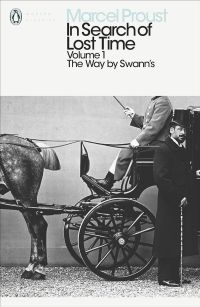
Get the Penguin Modern Classics Prendergast translation of In Search of Lost Time
Volume 1: "The Way by Swann's". UK version. Translated and with an introduction by Lydia Davis. Contains a general editor's preface by Christopher Prendergast. Includes endnotes and a synopsis.
Available as a paperback (ebook also available) (ISBN 9780141180311, 496 pages).
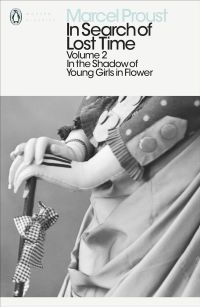
Get the Penguin Modern Classics Prendergast translation of In Search of Lost Time
Volume 2: "In the Shadow of Young Girls in Flower". UK version. Translated and with an introduction by James Grieve. Includes endnotes and a synopsis.
Available as a paperback (ebook also available) (ISBN 9780141180328, 576 pages).
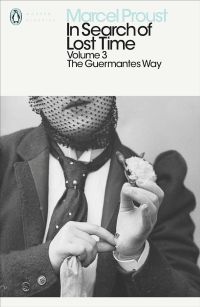
Get the Penguin Modern Classics Prendergast translation of In Search of Lost Time
Volume 3: "The Guermantes Way". UK version. Translated and with an introduction and notes by Mark Treharne. Includes endnotes and a synopsis.
Available as a paperback (ebook also available) (ISBN 9780141180335, 640 pages).

Get the Penguin Modern Classics Prendergast translation of In Search of Lost Time
Volume 4: "Sodom and Gomorrah". UK version. Translated and with an introduction by John Sturrock. Includes endnotes and a synopsis.
Available as a paperback (ebook also available) (ISBN 9780141180342, 400 pages).

Get the Penguin Modern Classics Prendergast translation of In Search of Lost Time
Volume 5: "The Prisoner" and "The Fugitive". UK version. Translated and with introductions and notes by Carol Clark and Peter Collier.
Available as a paperback (ebook also available) (ISBN 9780141180359, 720 pages).
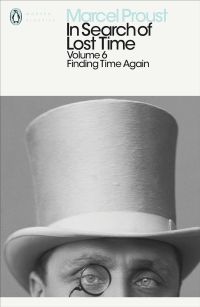
Get the Penguin Modern Classics Prendergast translation of In Search of Lost Time
Volume 6: "Finding Time Again". UK version. Translated and with an introduction and notes by Ian Patterson. Includes endnotes and a synopsis.
Available as a paperback (ebook also available) (ISBN 9780141180366, 400 pages).
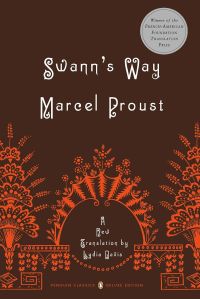
Get the Penguin Classics Deluxe Prendergast translation of In Search of Lost Time
Volume 1: "Swann's Way". US version. Translated and with an introduction and notes by Lydia Davis. Contains a note on the translation, suggestions for further reading, endnotes, and a snyopsis.
Available as a paperback (ebook also available) (ISBN 9780142437964, 496 pages).
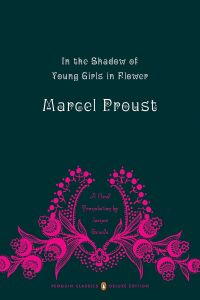
Get the Penguin Classics Deluxe Prendergast translation of In Search of Lost Time
Volume 2: "In the Shadow of Young Girls in Flower". US version. Translated and with an introduction and notes by James Grieve. Contains a note by Lydia Davis (not James Grieve), endnotes, a synopsis, and suggestions for further reading.
Available as a paperback (ebook also available) (ISBN 9780143039075, 576 pages).
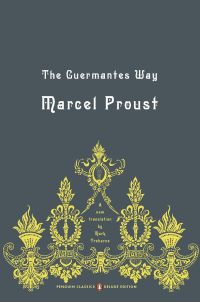
Get the Penguin Classics Deluxe Prendergast translation of In Search of Lost Time
Volume 3: "The Guermantes Way". US version. Translated and with an introduction and notes by Mark Treharne. Includes a note by Lydia Davis (not Mark Treharne) on the translation, endnotes, and a synopsis.
Available as a paperback (ebook also available) (ISBN 9780143039228, 640 pages).
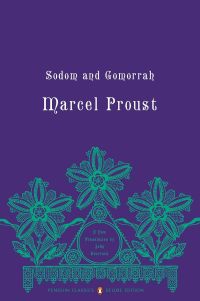
Get the Penguin Classics Deluxe Prendergast translation of In Search of Lost Time
Volume 4: "Sodom and Gomorrah". US version. Translated and with an introduction and notes by John Sturrock. Includes a note by Lydia Davis (not John Sturrock) on the translation, endnotes, and a synopsis.
Available as a paperback (ebook also available) (ISBN 9780143039310, 576 pages).
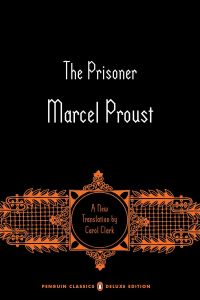
Get the Penguin Classics Deluxe Prendergast translation of In Search of Lost Time
Volume 5: "The Prisoner". US version. Translated and with an introduction and notes by Carol Clark. Includes a note by Lydia Davis (not Carol Clark) on the translation, endnotes, and a synopsis.
Available as a paperback (ebook also available) (ISBN 9780143133599, 448 pages).
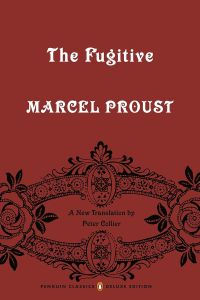
Get the Penguin Classics Deluxe Prendergast translation of In Search of Lost Time
Volume 6: "The Fugitive". US version. Translated and with an introduction and notes by Peter Collier. Includes a note by Lydia Davis (not Peter Collier) on the translation, endnotes and a synopsis.
Available as a paperback (ebook also available) (ISBN 9780143133704, 352 pages).
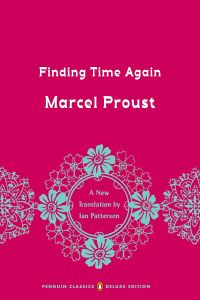
Get the Penguin Classics Deluxe Prendergast translation of In Search of Lost Time
Volume 7: "Finding Time Again". US version. Translated and with an introduction and notes by Ian Patterson. Includes a note by Lydia Davis (not Ian Patterson) on the translation, endnotes and a synopsis.
Available as a paperback (ebook also available) (ISBN 9780143133711, 432 pages).
Who is William C. Carter?
William C. Carter is an American professor emeritus specializing in French and an esteemed Proust scholar. He is the author of a biography of Proust (see Other Books).
About the Carter version of In Search of Lost Time
This is a revision and annotation of the Scott Moncrieff translation, not a new translation (and not a revision of the Kilmartin or Enright revisions). It was published by Yale. Each volume includes an introduction, extensive marginal notes, and a synopsis. The notes are to the left or right of the text in the print versions of these large-format books (7.50 x 9.25 inches).
As of July 2025, all six volumes have been published:
- Swann’s Way
- In the Shadow of Young Girls in Flower
- The Guermantes Way
- Sodom and Gomorrah
- The Captive and The Fugitive
- Time Regained
From Carter’s introduction:
“The results of these revisions [by Kilmartin and Enright] were not always felicitous or accurate…. Scott Moncrieff seems to have been more sensitive than Kilmartin and Enright to the cadence of Proust’s sentences and to the importance of placing the key or strongest word at the end of a sentence or paragraph…. My sole intention in all the revisions that I have made was to bring Scott Moncrieff’s excellent translation closer than ever before to the sprit and style of Proust’s original text.”
Reading Proust: “The girls have flowered anew”
“There is scarcely a sentence that Mr. Carter hasn’t changed, always for the better and often getting closer to Proust’s phrasing…. Among Mr. Carter’s gifts to Americans, he has put the novel into our idiom…. As for Mr. Carter’s annotations, they appear on the same page as the text—hence the large format. This is often a convenience, compared to turning to the back of the book. But I sometimes found them distracting.”
Boston Review: “Style over Substance: On Translating Proust” by Leland de la Durantaye
“The Yale edition is the first extensively annotated edition of Proust’s novel in English: Davis’s translation has some annotations, but far fewer. Given the quality and extent of the French critical edition’s annotations, the reader might assume that Carter would draw from among them for his more modestly sized edition while adding entries on matters that need special highlighting for an English reader. But the lines he tends to follow are different than those traced by Tadié…. The vast majority of Carter’s annotations are straightforward, clear, and helpful. But a significant minority raise troubling questions.”
Leaves in the Wind: “Thoughts In and Out of Season 5” by David Bentley Hart
“Yale University Press occasionally produces handsome and impressive critical editions of certain great literary works… in which scrupulously edited and pristinely presented original texts appear on the page bounded in a box, with notes running down the margins rather like a layer of Talmudic commentary. Nowhere has the format been used to happier effect, it seems to me, than in the recent volumes of Yale’s new edition of Proust’s In Search of Lost Time…. William C. Carter, Professor Emeritus of French at the University of Alabama at Birmingham… certainly ranks high among the finest scholars of Proust in the English-speaking world today (I earnestly recommend both his Marcel Proust: A Life and his Proust in Love)…. Carter’s version is the one to get for those readers who want to understand every reference, every passing detail, every incidental feature of the text. The novel is an ocean, but no person, place, or thing—however obscure, minor, or seemingly extraneous—escapes the nets of his commentary. Clearly it is all a work of love for Carter, and a monument to a life of scholarly dedication to the French literary canon, and to Proust in particular.”
Extract from the Carter version of In Search of Lost Time
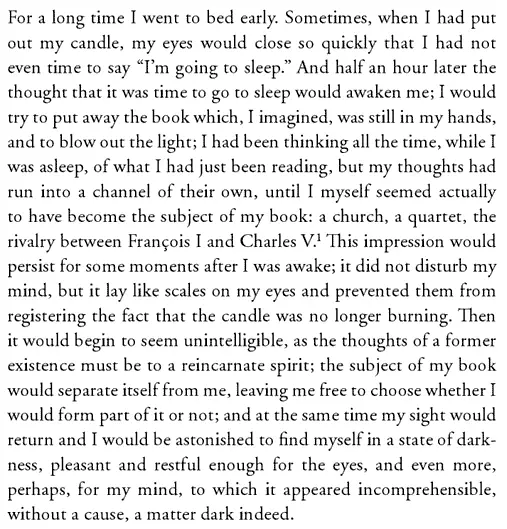
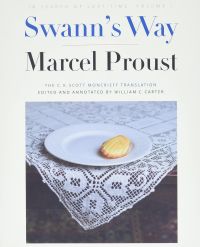
Get the Yale Scott Moncrieff and Carter translation of In Search of Lost Time
Volume 1: "Swann's Way". Includes an introduction, notes, and synopsis by William C. Carter.
Available as a paperback (ebook also available) (ISBN 9780300185430, 512 pages).
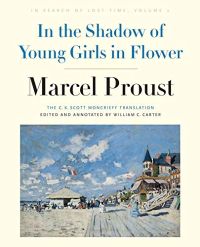
Get the Yale Scott Moncrieff and Carter translation of In Search of Lost Time
Volume 2: "In the Shadow of Young Girls in Flower". Includes an introduction, notes, and synopsis by William C. Carter.
Available as a paperback (ebook also available) (ISBN 9780300185423, 608 pages).
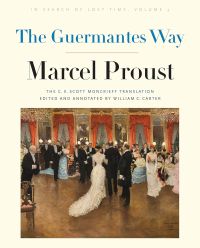
Get the Yale Scott Moncrieff and Carter translation of In Search of Lost Time
Volume 3: "The Guermantes Way". Includes an introduction, notes, and synopsis by William C. Carter.
Available as a paperback (ebook also available) (ISBN 9780300186192, 680 pages).
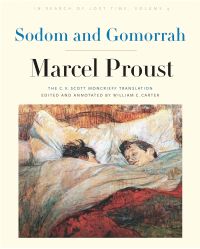
Get the Yale Scott Moncrieff and Carter translation of In Search of Lost Time
Volume 4: "Sodom and Gomorrah". Includes an introduction, notes, and synopsis by William C. Carter.
Available as a hardcover (ebook also available) (ISBN 9780300186208, 616 pages).
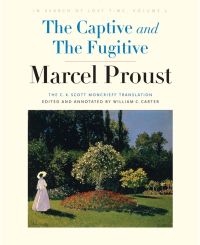
Get the Yale Scott Moncrieff and Carter translation of In Search of Lost Time
Volume 5: "The Captive and The Fugitive". Includes an introduction, notes, and synopses by William C. Carter.
Available as a hardcover (ebook also available) (ISBN 9780300186215, 784 pages).
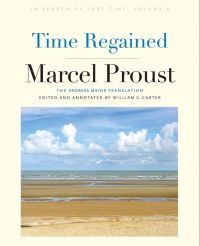
Get the Yale Scott Moncrieff and Carter translation of In Search of Lost Time
Volume 6: "Time Regained". Includes an introduction, notes, and synopses by William C. Carter.
Available as hardcover (ebook also available) (ISBN 9780300186222, 442 pages).
Who are Brian Nelson and Adam Watt?
Brian Nelson is a British translator and professor emeritus of French. He has translated many works by Emile Zola.
Adam Watt is a professor of French and comparative literature at Exeter. He wrote The Cambridge Introduction to Marcel Proust and a critical biography of Proust (see Other Books). His publications on Proust have appeared in English, French, German, Chinese, Danish, and Persian.
About the Nelson and Watt version of In Search of Lost Time
This is a new translation in the process of being published by Oxford.
My understanding is that Brian Nelson and Adam Watt are editors of the project. For Volume 1, Brian Nelson did the translation and Adam Watt is the editor and the author of the introduction and notes. I believe Brian Nelson will also translate the final volume. Other translators will handle other volumes (but I don’t know who).
The first volume was published in December 2023.
- The Swann Way (translated by Brian Nelson)
- In the Shadow of Girls in Blossom (translated by Charlotte Mandell)
- The Guermantes Way (translated by Peter Bush)
- ?
- ?
- ?
- ? (to be translated by Brian Nelson)
Volume 1 includes acknowledgments, a general editors’ preface, a translator’s note, an introduction, a note on the text, a select bibliography, a chronology of Marcel Proust, and endnotes. The introduction thoughtfully warns readers that it reveals plot details.
From the General Editors’ Preface:
“Publication will be in seven volumes. There will be a different translator for each volume (except the first and the last). We have chosen to standardize certain terms, recurrent phrases and expressions, modes of address, personal titles, use of elision and so forth across the translations, and, more generally, have attempted to facilitate unity of voice, a stylistic consonance, across the volumes (while bearing in mind shifts in Proust’s voice and tone as his work progressed)…. The notes seek not to offer any sort of critical commentary on Proust’s novel but rather to clarify dates and details that will enrich readers’ appreciation of its unique breadth of reference. The introductory essay to each volume outlines the key concerns and preoccupations of the volume in question, providing a broad frame of reference for readers tackling the novel for the first time and reflecting on the role of that volume in the wider structure of the novel as a whole.”
From the translator’s note by Brian Nelson:
“Successful translation of Proust is achieved (unsurprisingly, one might feel) by making him sound like Proust—by giving him an English voice, a voice that conveys his vision, his sensibility, and his unique qualities as a writer…. While recognizing the impossibility of exact equivalence, my aim has been to recreate the intricate harmonies of Proust’s sentences, and the whole pattern of effects embodied in his prose, in such a way that the translation creates the ‘illusion’ of which Anthea Bell speaks [that the translation will ‘read as easily and be as appealing to the reader as if it had been originally written in English].”
Oxford University Press Blog: “Translating Proust Again” by Brian Nelson
“Proust in English can be idiosyncratic while retaining an idiomatic quality. My goal has been to recreate Proust’s voice in such a way that the translation creates the illusion that the reader is reading not a translation but the original.”
The Sydney Morning Herald: “Why we just can’t forget Marcel Proust” by Yuri Cerqueira dos Anjos
“It is difficult to predict how this new translation will look as a whole. However, this first volume delivers a lot in terms of readability, which is definitely a good indication. Many translators in the past have associated Proust with an excessively elevated and ornate language…. Nelson retains Proust’s serpentine style without making it appear obscure…. Moreover, Nelson is able to seemingly transition between Proust’s wide range of voices…. His approach, supported by effective and precise explanatory endnotes, makes this version a compelling introduction to Proust’s masterpiece.”
Extract from the Nelson and Watt version of In Search of Lost Time
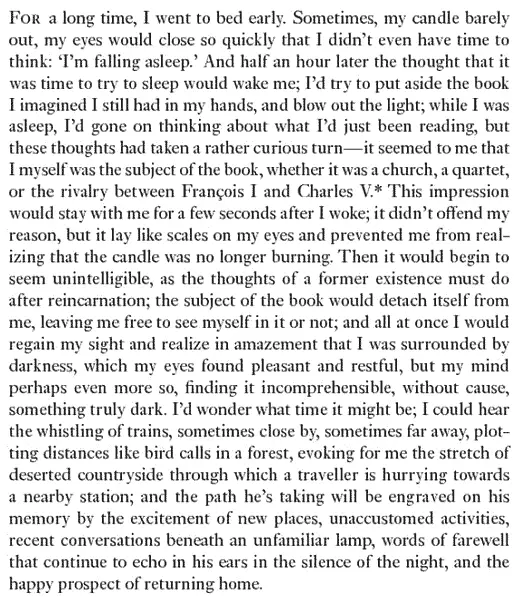
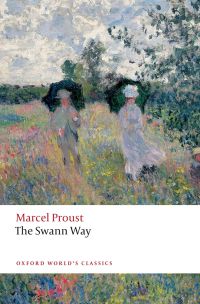
Get the Oxford Nelson and Watt translation of In Search of Lost Time
"The Swann Way." Translated by Brian Nelson. Includes a translator's note by Brian Nelson. Includes an introduction, note on the text, select bibliography, chronology, and endnotes by Adam Watt. Includes a general editors' preface by Nelson and Watt.
Available as a paperback (ebook also available) (ISBN 9780198871521, 480 pages).
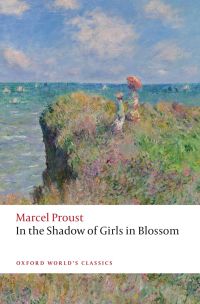
Get the Oxford Nelson and Watt translation of In Search of Lost Time
"In the Shadow of Girls in Blossom". Translated by Charlotte Mandell with an introduction by Edward J. Hughes and explanatory endnotes by Adam Watt. Also contains a general editors' preface, translator's note, note on the text, bibliography, and chronology of Marcel Proust.
Available as a paperback (ebook also available) (ISBN 9780192845672, 576 pages).
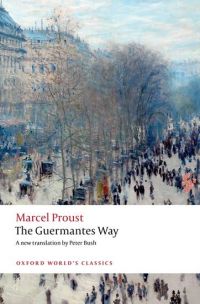
Get the Oxford Nelson and Watt translation of In Search of Lost Time
"The Guermantes Way." Translated by Peter Bush.
Available as a paperback (ebook also available) (ISBN 9780192849762, 640 pages).
Useful Websites
- The Proust Project: 182 Days of Marcel Proust (Penguin translation)
https://proustproject.blogspot.com/ - Reading Proust
https://readingproust.com/ - The University at Buffalo: Collection of related books
https://research.lib.buffalo.edu/proust/crit-in-eng - Brothers Judd: Collection of related links
https://brothersjudd.com/index.cfm/fuseaction/reviews.detail/book_id/333/Swann%27s%20Way.htm - Study Guide by Michael J. Cummings
https://cummingsstudyguides.net/Guides6/Remembrance.html - Website of Chris Taylor (English translations of miscellaneous writings)
http://www.yorktaylors.free-online.co.uk/ - Proust Ink (created by William C. Carter and Nicolas Drogoul to celebrate the life and works of Proust)
https://www.proust-ink.com/
Yet More Translations?!
On a separate page, I share information on additional translations of Volume 1 (Swann’s Way) and partial translations of Volume 1 (Swann in Love).
Albertine Gone translated by Terence Kilmartin (Chatto & Windus, 1989)
“After the death in 1986 of Proust’s niece, Suzy Mante-Proust, her son-in-law discovered among her papers a typescript that had been corrected and annotated by Proust. The late changes Proust made include a small crucial detail and the deletion of approximately 150 pages. This version was published in French (Paris: Grasset, 1987) and translated as Albertine Gone by Terence Kilmartin (London: Chatto & Windus, 1989); the translation is now out of print.”
Time Regained translated by David Whiting (Naxos AudioBooks, 2012)
The unabridged audiobook published by Naxos (read by Neville Jason) is based on the original Scott Moncrieff translation, except for the last volume, which is based on a translation by David Whiting that was commissioned by Naxos and has not been published in print.
Biographies and Guides
See below.
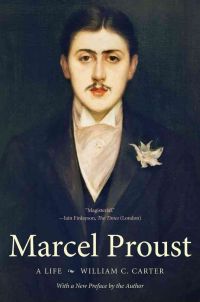
Get Marcel Proust: A Life by William C. Carter
A biography.
Available as a paperback (ebook also available) (ISBN 9780300191790, 1000 pages).
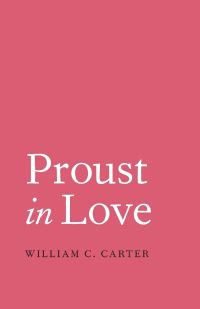
Get Proust in Love by William C. Carter
A biography.
Available as a paperback (ebook also available) (ISBN 9780300211078, 280 pages).
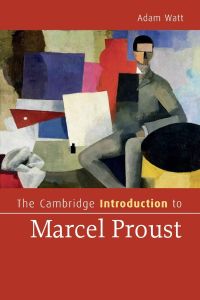
Get The Cambridge Introduction to Marcel Proust by Adam Watt
A biography.
Available as a paperback (ebook also available) (ISBN 9780521734325, 154 pages).
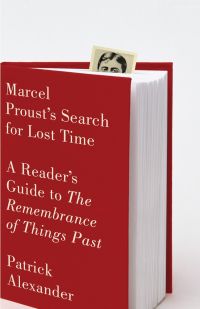
Get Marcel Proust's Search for Lost Time: A Reader's Guide to the Remembrance of Things Past by Patrick Alexander
Includes "detailed plot summaries, historical and cultural background, a guide to the fifty most important characters, maps, family trees, illustrations, and a brief biography of Proust."
Available as a paperback (ebook also available) (ISBN 9780307472328, 400 pages).
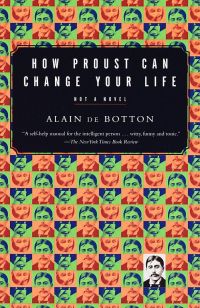
Get How Proust Can Change Your Life by Alain de Botton
"Alain de Botton combines two unlikely genres—literary biography and self-help manual—in the hilarious and unexpectedly practical How Proust Can Change Your Life."
Available as a paperback (ebook also available) (ISBN 9780679779155, 208 pages).

Get Living and Dying with Marcel Proust by Christopher Prendergast
"Entertaining and erudite, Prendergast’s book will surely become the companion for all readers either about to reembark on Proust’s three-million-word journey or setting out for the first time."
Available as a paperback (ebook also available) (ISBN 9781609457600, 256 pages).
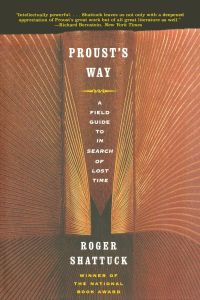
Get Proust's Way: A Field Guide to In Search of Lost Time by Roger Shattuck
"Proust's Way, the culmination of a lifetime of scholarship, will serve as the next generation's guide to one of the world's finest writers of fiction."
Available as a paperback (ebook also available) (ISBN 9780393321807, 318 pages).
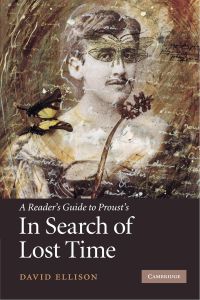
Get A Reader's Guide to Proust's In Search of Lost Time by David Ellison
"David Ellison leads the reader through the work, clarifying but not oversimplifying the intricate beauty of Proust's imaginary universe."
Available as a paperback (ebook also available) (ISBN 9780521720069, 230 pages).
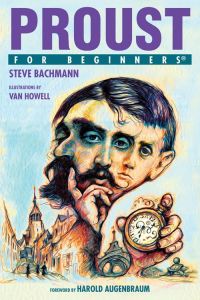
Get Proust for Beginners by Steve Bachmann
Illustrated by Van Howell. Introduction by Harold Augenbraum. "Proust For Beginners is a compelling biography of French novelist Marcel Proust and a vivid portrait of his times. It also serves as a concise guide and critical review of In Search of Lost Time."
Available as a paperback (ebook also available) (ISBN 9781939994448, 170 pages).
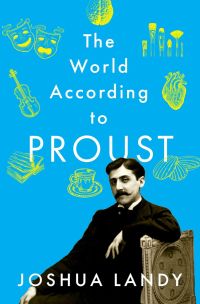
Get The World According to Proust by Joshua Landy
"Joshua Landy invites the reader to view the novel as a single quest-a quest for purpose, enchantment, identity, connection, and belonging- through the novel's fascinating treatments of memory, society, art, same-sex desire, knowledge, self-understanding, self-fashioning, and the unconscious mind. "
Available as a hardcover (ebook also available) (ISBN 9780197648681, 152 pages).
What’s the best In Search of Lost Time translation?
How can there be a best when it’s not even clear what would make a translation perfect?
From the General Editors’ Preface to Nelson and Watt’s The Swann Way:
“There is no ideal, ultimate translation of a given original. There cannot be, given that nothing is exactly the same in one language as in another.”
Independent: “Forever in search of lost truth: Gabriel Josipovici on the problems of translating Proust, and the new revision by D J Enright”
“What all this [repeated revision] teaches us is that Valery was literally correct when he said that works of art are never finished, only abandoned. Our romantic hackles rise at this; we want to believe in well-wrought urns and the unearthly perfection of masterpieces. But these are myths; most works remain, like Calder’s mobiles, floating in a breeze of possibilities. Scholars may advance our knowledge, money may buy a better text and a better translation, but the ‘true’ text and the perfect translation will, of course, always remain tantalisingly out of reach, and we had better learn to live with this when we read Shakespeare, or Joyce, or Proust.”
From the General Editor’s Preface by Christopher Prendergast to the Penguin translation:
“Henry James described the house of fiction as a house with many windows, and there is no reason why the figure of speech should not be carried over to the translation of fiction.”
Nevertheless, my recommendations
If you’re a traditionalist, and not afraid of Victorian effusiveness, then I’d recommend the Enright translation.
If you’re modern and a bit iconoclastic, then get the Penguin/Prendergast translation.
If you’re not sure you want to read the whole thing, check out the separate page for Volume 1, Swann’s Way, which also lists a few editions of Swann in Love, which is only part of Swann’s Way.
Your thoughts?
Which translation(s) have you read? Which translation will you read? Let us know in the comments!

